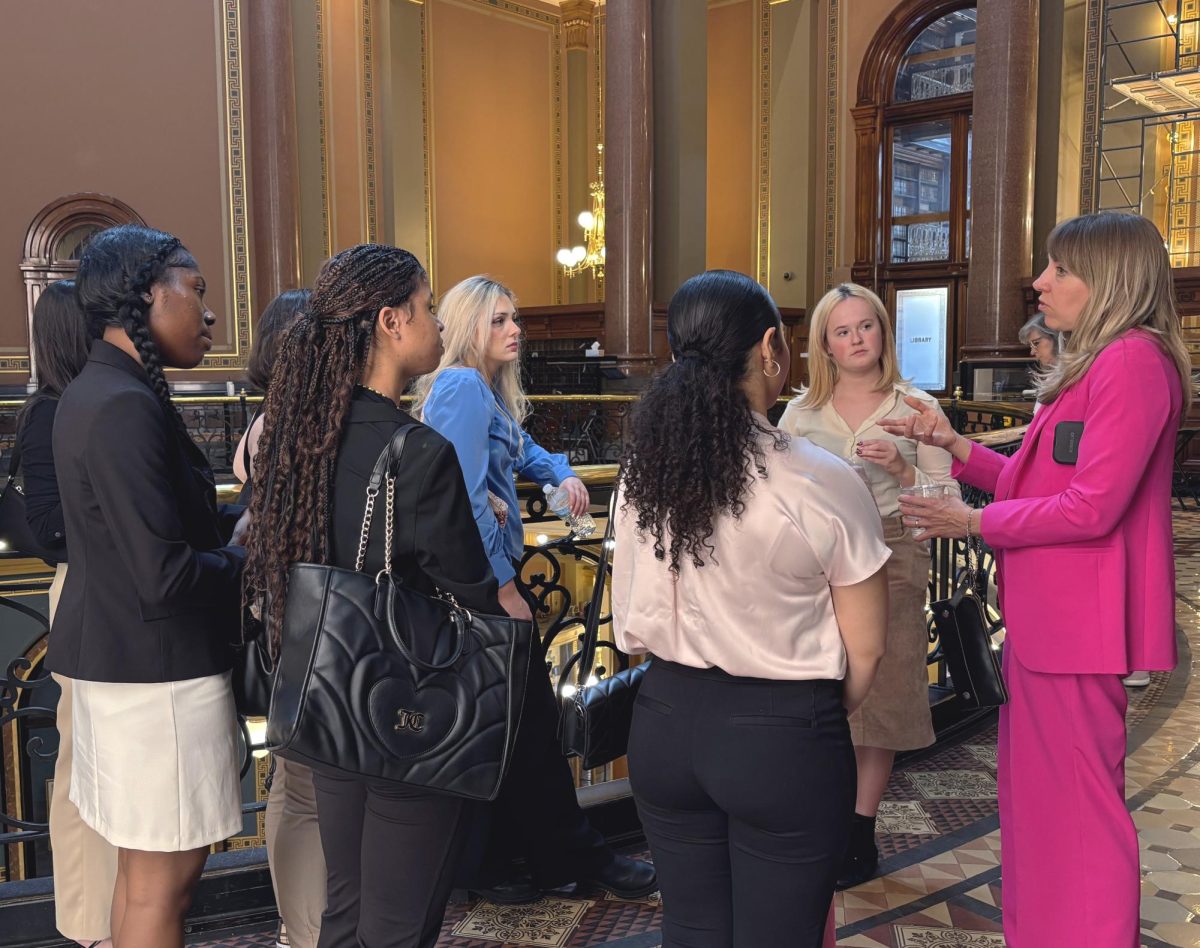The number of bills still active during the 2025 Iowa legislative session continues to narrow. The Iowa legislature has several deadlines for bills, called funnels. The first funnel on March 7 required bills to advance out of committee to be considered alive, with some exceptions, such as appropriations bills.
To advance beyond the second funnel on April 4, bills had to have been passed by either the House or the Senate. As the end of the legislative session nears, many of the highly-publicized bills have died. However, Iowans may see some of these bills make a resurgence next year, as the General Assembly remains the same for two years.
DEI in higher education
This session, the Iowa House of Representatives formed a committee on higher education to conduct a “comprehensive review” of the state’s higher education systems, including public universities, community colleges and private institutions.
Rep. Taylor Collins, R-Mediapolis, chairs the committee. One of Collins’ focuses for the committee has been dissolving diversity, equity and inclusion programs.
“I think Americans and Iowans are sick of identity politics,” Collins said in regards to ending DEI programs at public institutions in an Iowa Press interview on Feb. 7. “And really, I think one of the reasons why we have a lack of trust in our higher education system is we’re getting distracted from many of the mission-focused agendas that we’ve given our institutions.”
The committee has also introduced or sponsored bills that would affect DEI programs at private colleges and universities in the state, including HF 854, which would have put Drake’s Iowa Tuition Grant funding at risk if it continued operating its DEI programs.
“When it comes to the Iowa Tuition Grant, the reason why we’re looking at many of these proposals is to make sure that our private institutions are our partner in addressing the workforce needs of the state,” Collins said in the Iowa Press interview. “We want them to come to the table, and I hope they do that.”
HF 854 died in the second legislative funnel. The bill made it out of committee but was never brought to the House floor.
A bill that would have originally prohibited state entities — Iowa’s three public universities — from funding DEI programs or hiring DEI officers was amended to include both community colleges and private universities. HF 856 passed through the House on March 18 along party lines.
However, the Senate Education Committee unanimously approved an amendment removing private institutions from the bill before recommending its passage. Subcommittee chairman Sen. Ken Rozenboom, R-Oskaloosa, proposed the amendment.
“I’m very uncomfortable, personally…with dipping our toe into conditioning the Iowa Tuition Grant,” Rozenboom said in a subcommittee meeting on April 1.
There are currently no bills that would limit DEI initiatives at private institutions still active this legislative session.
Bills signed into law this session
The first bill signed into law this legislative session removed gender identity as a protected class from Iowa’s Civil Rights Act. Gov. Kim Reynolds signed Senate File 418 into law on Feb. 28, which prompted President Marty Martin to send an email to Drake students, faculty and staff reaffirming the University’s commitment to inclusion.
“This is a moral failure against which we stand in opposition,” Martin wrote in the email. “It is our duty to respect, support, and affirm anyone in our community targeted by these actions.”
HF 22 made Iowa the 31st state to ban handheld cell phone use while driving. The bill allows electronic device use in hands-free or voice-activated mode and provides exceptions for public safety officers, health care professionals and emergency situations. Law enforcement will give warnings for cell phone use beginning July 1, and the $100 fine will go into effect on Jan. 1, 2026.
HF 181 lists beverages containing THC alongside alcoholic beverages in Iowa’s open container law. Beginning July 1, having an open container of a THC beverage in the passenger area of a motor vehicle will be a punishable misdemeanor.
Enrolled bills
Several bills have been passed by both the House and the Senate and are awaiting Reynolds’ signature.
HF 924 would lower the age to buy a handgun from 21 to 18. Proponents of the bill believe purchasing a handgun is a right that all adults should have access to, while opponents have raised concerns about gun violence. The bill passed the House 79-18 on March 25 and passed the Senate 33-14 on April 7.
HF 954 would introduce a variety of reforms to state elections, including allowing poll workers to challenge a voter’s citizenship status. A challenged voter’s registration status would be listed as “unconfirmed” until the voter provides evidence that they are qualified to vote. Additionally, the bill would also allow candidates convicted of a felony to run for federal office, although candidates convicted of a felony are still disqualified from holding offices in the state. Other subsections of the bill ban ranked choice voting and increase the requirements to be considered a political party.














